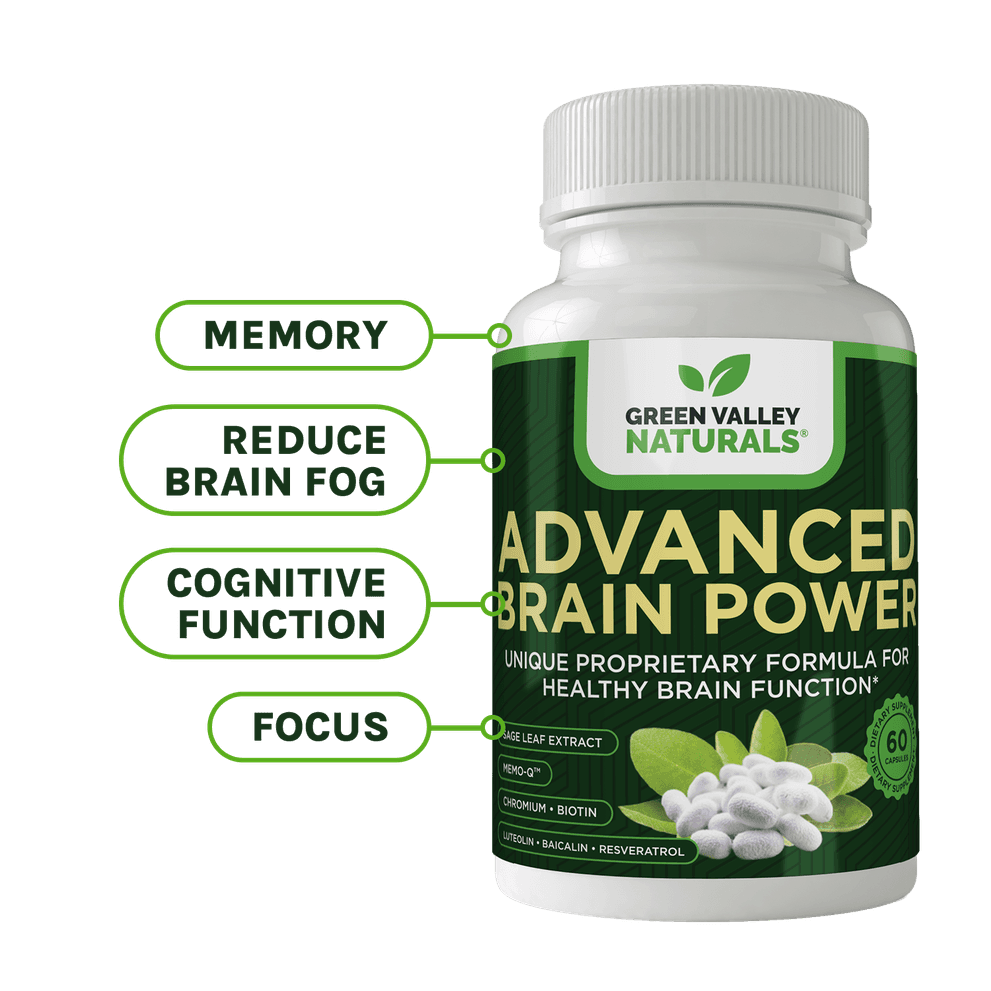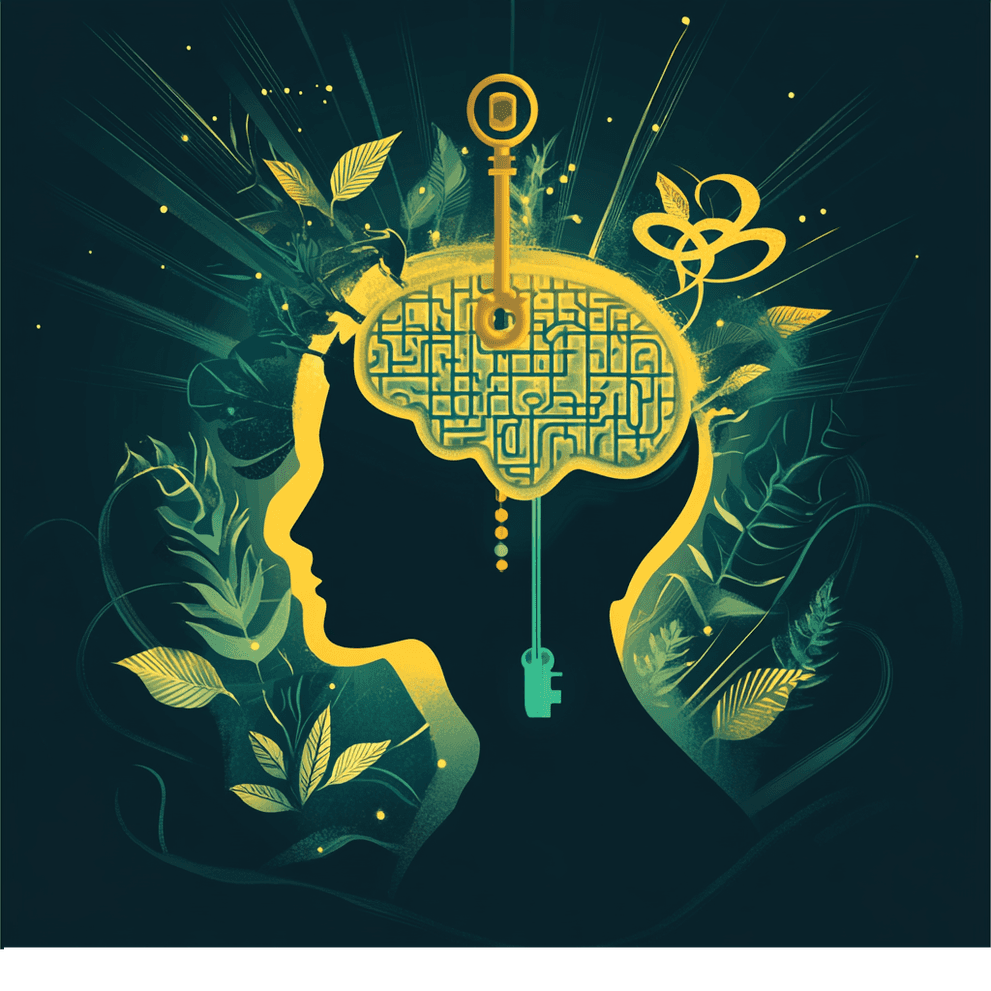
Imagine waking up every morning with a mind as sharp as a crystal-clear mountain stream—focused, energized, and ready for anything. No mental fog, no sluggish thinking, no scattered thoughts. Just pure, powerful clarity that helps you tackle challenges, make better decisions, and feel fully alive. Science says this isn’t just wishful thinking—it’s something you can create every single day with a few simple, life-changing habits. The best part? You can start today.
Key Takeaways
Mental clarity is trainable—it’s a measurable brain state influenced by diet, sleep, stress, and daily habits.
Seven simple habits—from nutrition to decluttering—can dramatically improve focus, memory, and decision-making.
Research shows results—as little as 15 minutes of cognitive training daily can measurably enhance clarity within weeks.
What Is Mental Clarity?
Mental clarity is your brain operating at its optimal level, where you're fully present and engaged with whatever task demands your attention. It's the opposite of that frustrating mental fog that makes you feel like you're thinking through molasses. Think of it as the difference between a high-definition TV and one with poor reception – same screen, dramatically different picture quality.
Recent research from 2023 published in Nature Neuroscience has revealed that mental clarity isn't just a subjective feeling – it's a measurable brain state. Using advanced neuroimaging, scientists can now see the distinct patterns of neural connectivity that occur when someone is experiencing peak cognitive performance versus mental fog. During states of mental clarity, the brain shows increased communication between the prefrontal cortex (responsible for executive function) and the hippocampus (crucial for memory formation), creating what researchers call "cognitive coherence."
What makes this particularly exciting is that mental clarity isn't just something you're born with or without – it's a skill you can actively develop. A 2024 study from Stanford's Neuroscience Institute found that people who practiced specific cognitive training techniques for just 15 minutes daily showed measurable improvements in mental clarity within three weeks, with brain scans revealing enhanced neural efficiency and reduced mental fatigue. More on these training techniques in a minute.
Why Mental Clarity Transforms Your Daily Life
Mental clarity isn't just about being more productive at work (though that's certainly a nice bonus). When your mind is clear and focused, it creates a ripple effect that touches every aspect of your life. You make better decisions because you can think through options without mental static interfering. Your relationships improve because you're truly present during conversations instead of mentally juggling a dozen other concerns.
Recent research from Harvard Medical School in 2023 demonstrated that people with higher levels of mental clarity showed significantly lower cortisol levels throughout the day, indicating reduced chronic stress. The study followed 2,000 participants for six months and found that those who rated themselves as having good mental clarity were 40% less likely to report feelings of overwhelm and 35% more likely to feel satisfied with their daily accomplishments.
Perhaps most importantly, mental clarity helps break the cycle of anxiety and depression that many people experience. When your thoughts are clear and organized, you're less likely to get caught in the spiral of rumination and worry that feeds these conditions. A groundbreaking 2024 study published in Psychological Science found that interventions designed to improve mental clarity reduced symptoms of anxiety by an average of 28% and depression symptoms by 22% over a 12-week period.
The Clear Divide: Mental Clarity vs. Brain Fog
Understanding mental clarity becomes clearer when you contrast it with its opposite: brain fog. If mental clarity is like having a powerful searchlight illuminating your thoughts, brain fog is like trying to navigate with a dying flashlight in thick fog.
Brain fog manifests as forgetfulness (where did I put my phone?), lack of focus (reading the same paragraph three times), sluggish thinking (feeling like your thoughts are moving through honey), and general confusion (walking into a room and forgetting why you're there). It's that frustrating state where you know you're capable of more, but your brain just won't cooperate.
Mental clarity, on the other hand, is characterized by quick, efficient thinking where ideas flow naturally from one to the next. Your attention stays focused on what matters without constant effort. Your memory works reliably – you remember appointments, conversations, and details without strain. Decision-making becomes smooth and confident rather than agonizing and second-guessed.
New research from the University of California, Berkeley, published in early 2024, used real-time brain monitoring to track people as they moved between states of mental clarity and brain fog throughout the day. The researchers discovered that mental clarity is associated with increased gamma wave activity (associated with heightened awareness) and better synchronization between different brain regions. During brain fog states, this synchronization breaks down, creating the subjective experience of mental cloudiness.
What's particularly encouraging about this research is that it confirms mental clarity isn't a fixed trait – it's a dynamic state that can be influenced by factors like sleep quality, nutrition, stress levels, and specific cognitive practices. The brain's neuroplasticity means that with the right approach, you can train your mind to spend more time in states of clarity and less time struggling through mental fog. So, what can you do? Let's take a closer look.
Seven Daily Habits For Achieving Mental Clarity
There are many ways to achieve mental clarity and many brain fog remedies. It may seem hard, but it's really not rocket science. For the most part, it involves making healthy lifestyle choices, including getting all the nutrients your brain needs. Add to that reducing stress hormones, enjoying life, eating a balanced diet, and treating your body with TLC. Read on for the specifics...
#1 Choose Brain-Boosting Foods and Nootropics to Improve Concentration and Focus
You cannot hope to have a healthy brain with an unhealthy diet. Your cognitive health and well-being are dependent on a healthy diet. Your brain is the most metabolically active organ in your body, consuming about 20% of your daily calories, and it absolutely cannot perform at its peak without premium nutrition.
The connection between what you eat and how clearly you think isn't just common sense – it's now backed by some of the most compelling neuroscience research of our time. A groundbreaking 2023 study published in Nature Medicine followed 12,000 participants across 15 countries for five years, tracking both their dietary patterns and cognitive performance through detailed brain imaging and cognitive testing. The results were stunning: people who followed a whole-foods diet rich in omega-3 fatty acids, antioxidants, and essential nutrients showed 32% better cognitive performance and 40% less age-related brain shrinkage compared to those eating primarily processed foods.
What made this study particularly powerful was its use of advanced brain imaging technology that could actually visualize how different diets affected brain structure over time. Participants eating whole foods – fresh vegetables, wild-caught fish, grass-fed meats, nuts, and seeds – showed increased gray matter density in areas crucial for memory, attention, and executive function. Meanwhile, those consuming high amounts of processed foods showed measurable brain inflammation and reduced connectivity between key brain regions responsible for mental clarity.
Top "Cognitive Superfoods"
The 2023 Nature Medicine study specifically identified certain foods as "cognitive superfoods" based on their measurable impact on brain function. These include:
Fatty fish like sardines, mackerel, and wild salmon topped the list, with participants who ate fish twice a week showing 25% better performance on memory tests compared to those who rarely consumed fish.
Nuts and seeds, particularly walnuts and pumpkin seeds, were associated with improved processing speed and attention span.
Pasture-raised eggs with their golden yolks full of choline (essential for memory formation)
Leafy greens bursting with folate and antioxidants that protect against cognitive decline
Colorful berries loaded with flavonoids that enhance communication between brain cells.
Perhaps most surprisingly, the study found that the quality of fats in your diet directly impacts how quickly your brain can process information. Participants who consumed primarily omega-3 rich fats and monounsaturated fats (from sources like olive oil and avocados) showed faster neural transmission speeds – literally thinking faster – compared to those eating processed fats and seed oils.
The Role of Targeted Supplementation
While whole foods should form the foundation of your brain-healthy diet, sometimes your brain needs therapeutic doses of specific nutrients that are difficult to obtain from food alone. This is particularly true for nutrients like omega-3 DHA (you'd need to eat fish daily to get optimal amounts), magnesium (depleted in most soils), and vitamin D3 (especially if you live in northern climates or spend most of your time indoors).
A recent 2024 study from the Mayo Clinic examined the cognitive effects of targeted supplementation in people already eating healthy diets. The researchers found that even among participants with excellent whole-food diets, those who supplemented with specific brain-supporting nutrients – including high-dose omega-3s, magnesium glycinate, and vitamin B-complex – showed additional improvements in mental clarity, memory formation, and stress resilience.
The key insight from this research is that supplements aren't meant to replace good nutrition – they're meant to optimize it. Think of supplements as precision tools that can help address specific deficiencies or provide therapeutic levels of nutrients when your brain is under the stress of aging or needing peak performance. Here are the ones we recommend.
Bacopa Monnieri. An herb known for its cognition-enhancing properties. Effectively promotes memory, focus, and reduces anxiety. Increases brain chemicals involved in mental clarity. An important herb in Brain Vitality Plus.
Citicoline (CDP-Choline). Crucial for brain health. Helps form phospholipids needed for memory and cognition. Enhances production of acetylcholine, a vital neurotransmitter. A key ingredient in Brain Vitality Plus.
Vitamin D3. Vitamin D3 acts as a powerful cognitive enhancer by supporting the production of neurotransmitters like serotonin and dopamine that are essential for sustained focus and mental clarity. Recent research from 2023 published in Neuropsychopharmacology found that people with optimal vitamin D3 levels (above 40 ng/mL) showed significantly better performance on attention and working memory tasks compared to those with deficient levels, with brain imaging revealing increased activity in the prefrontal cortex – the brain's command center for focus and decision-making.
L-Theanine. A natural amino acid found primarily in green tea leaves, known for its calming and cognitive effects. L-Theanine reduces stress and anxiety, improves sleep quality, boosts cognitive performance and focus, and increases mental alertness without jitteriness. Also supports a positive mood.
Lion’s Mane Mushroom. A medicinal mushroom renowned for its mental clarity and brain function benefits. Stimulates production of nerve growth factor, which aids regeneration and function of nerve cells. Lion's mane is especially known for enhancing optimal brain function with memory and focus. This nutrient is found in Green Valley Natural's Maximum Memory Support product.
Omega-3 Fatty Acids (DHA & EPA). Also simply called, "fish oils." Offers numerous benefits for brain health. Omega-3 fatty acids support cognitive function and overall brain health. Fights brain fog, energizes brain cells, boosts blood flow to the brain, acts like "brain-cell fertilizer." Supports mental sharpness, memory, and problem-solving skills. A key ingredient in Brain Vitality Plus.
However, the study also emphasized the importance of working with healthcare providers to determine which supplements are appropriate for your individual needs, as some can interact with medications or may not be necessary if your diet is already nutrient-rich.
#2 Manage Emotional Stress and Anxiety
Emotional stress and anxiety don't do your brain any favors. Indeed, they fragment your attention and your mental well being, as well as your emotional well being.
Practices like mindfulness, meditation, and yoga aren't just trendy wellness buzzwords – they're scientifically proven ways to train your brain back into a state of calm focus. Even just ten minutes of deep breathing can shift your nervous system from stress mode to rest-and-digest mode, creating the mental space you need for clear thinking. [4, 6]
Whether it's a morning meditation, a gentle yoga flow, or simply talking through your worries with a therapist, these practices work by strengthening the prefrontal cortex (your brain's CEO) while calming the amygdala (your brain's alarm system). The key is finding what resonates with you – maybe it's a walking meditation in nature, maybe it's journaling with your morning coffee, or maybe it's that pottery class you've been putting off – because when you regularly engage in activities that bring you genuine joy and relaxation, you're not just being self-indulgent, you're literally rewiring your brain for better focus and mental clarity.

#3 Engage in Physical Activity
Here's the truth that every office worker and student discovers sooner or later: your brain and your body are inextricably linked, and when one gets sluggish, the other follows suit. If you've ever noticed how much sharper you feel after a brisk walk around the block or how that afternoon brain fog seems to lift after climbing a few flights of stairs, you're experiencing the immediate cognitive benefits of movement.
Physical activity is like hitting the refresh button on your mental browser it floods your brain with fresh, oxygen-rich blood, triggers the release of BDNF (brain-derived neurotrophic factor) which literally grows new brain cells, and pumps out feel-good chemicals like endorphins and norepinephrine that enhance focus and mental clarity. [3]
Even micro-movements throughout your day can make a massive difference: setting a timer to stand and stretch for five minutes every half hour, taking the stairs instead of the elevator, or doing some jumping jacks between tasks can prevent that mental sludge that builds up from hours of sitting still. There's wisdom in the old saying "the brain can only comprehend what the butt can endure" – your cognitive capacity is directly tied to your physical vitality, which explains why students who exercise before school consistently outperform their sedentary peers, and why the most productive people you know probably have some form of regular movement built into their daily routine.
What can you do? Take regular breaks to engage in physical activity to boost cognitive function and reduce mental fatigue. Set a timer to remind you to move for 5 minutes every half hour or 10 minutes every hour in addition to intentional workouts.
#4 Declutter Your Mind and Get Organized
A cluttered mind can derail cognitive performance and create a mental state of fogginess. Fortunately, there are multiple ways to address this issue.
Make to-do lists and prioritize tasks to stay focused and on track. Lists relieve your mind from having to remember these kinds of details.
Limit screen time and use of digital devices which will reduce disstractions and promote clearer thinking. Turn off notifications so you're not being interrupted all throughout the day.
Spend a half hour or hour a week reorganizing and decluttering your workspaces to reduce distractions and promote mental clarity. A cluttered desk promotes mental disorganization.
Journaling can help promote emotional well being and therefore, productivity.
#5 Get Plenty of Sleep
Poor sleep can quickly lead to brain fog, whereas quality sleep helps restore and improve mental clarity. Sleep is critical for good brain function. To get quality sleep, it's important to set the stage for it throughout the day. For example:
Get out in the sunshine and its blue light early in the day, so your body recognizes the difference when sleeping time arrives.
Exercise -- but not within two hours of sleep. Get moving early in the day if possible, for the sake of compliance, and also so it doesn't re-energize you right before bedtime.
Drink a lot of water early in the day, and less after dinner, so you're not waking up during the night to use the bathroom.
Avoid caffeine after noon to get enough sleep and be tired at bedtime. It can take up to 10-12 hours for caffeine to clear your system, depending on how quickly you metabolize it.
Turn off screens at least an hour before bedtime to avoid blue light in the evening.
Get up and go to bed at the same time every day, even on weekends.
Control stress with yoga, deep breathing exercises, brisk walking after work or during your lunch hour, and reading relaxing books before bedtime.
#6 Create a Conducive Environment
Mental fog and a clouded mind can severely decrease productivity, so organizing the mind's energetic resources can be as simple as creating a quiet and distraction-free workspace to promote focus and concentration. Here are some simple tips:
Put things away, create a filing system so that loose papers and other items don't sabotage your brain's mental clarity. If your surroundings are organized, your brain will be also.
Use natural light and a comfortable temperature -- not too hot and not too cold -- to promote a sense of well-being and focus.
Music and aromatherapy also promote relaxed focus, which is the ideal combination for productivity. Use music without lyrics so the words don't distract you from the tasks at hand. Essential oils that promote mental clarity and concentration include lemon, peppermint, lavender, and frankincense.
#7 Stay Mentally Active
Keep learning throughout your life. Scientists think that ongoing education may help keep memory sharp and mental clarity active even in advanced age by getting you in the habit of being mentally active. [5] So challenge your brain as well as your body with daily exercise. Do jigsaw, word search, or crossword puzzles and/or Sudoku daily. [6] A large study of 4,715 adults in 2015 suggested that just 15 minutes a day on brain training activities can improve concentration. [6]
This is true for older adults (and kids) as well. A large study of 2,832 older adults with a 10-year follow-up showed that brain training exercises improved cognition, memory, and processing skills after just 10 to 14 sessions. And 10 years later, most study participants said they could complete the daily activities at least as well, if not better than, they did at the beginning of the trial. [6]
This is very similar to the results we told you about earlier from the Stanford study, where participants engaged in daily sessions (about 15 minutes) featuring exercises that included:
Memory games: Participants practiced recalling lists of letters, faces, or spatial patterns, increasing difficulty as performance improved.
Delayed match-to-sample tasks: Memorizing items during an encoding phase, then identifying specific items after a brief delay.
Visual search and switching tasks: Finding target images among distractors, with rules that switched unpredictably to demand cognitive flexibility.
Processing speed games: Rapid decision tasks where participants responded to changing stimuli as quickly and accurately as possible.
Mental manipulation exercises: Rearranging objects or numbers in the mind to solve problems.
It's important to note that the exercises were adaptive, meaning the difficulty scaled dynamically based on the participant’s real-time performance. The system also monitored engagement and mental fatigue (sometimes using facial expression analysis), ensuring tasks were challenging but not exhausting.
Stanford’s program utilized a custom interface, incorporating proven exercises from platforms like BrainHQ and Lumosity, which have been validated for research on older adults and those at risk for cognitive decline.

Start Your Journey to Mental Clarity
As the saying goes, "A journey of 1,000 miles begins with a single step." And that's also true for your journey to mental clarity. Yes, it requires intentional practice and consistent habits. However, by taking the steps above, you can enhance your mental clarity and lead a more fulfilling life.
Summary
Mental clarity—the state of being fully present, focused, and quick-thinking—is not just a gift for the lucky few but a skill anyone can develop. This article reveals seven science-backed daily habits to banish brain fog and boost cognitive performance: fueling your brain with nutrient-rich foods and targeted supplements, managing stress through mindfulness and relaxation techniques, incorporating regular physical activity, decluttering your space and mind, prioritizing quality sleep, creating an environment that supports focus, and staying mentally active through lifelong learning. Supported by cutting-edge neuroscience and clinical research, these strategies show how lifestyle choices directly influence brain connectivity, gamma wave activity, and mental sharpness.
Frequently Asked Questions
How to develop mental clarity?
Mental clarity is achievable in many ways. The primary ways to accomplish it include making it a priority and learning what to do. Followed by the seven daily habits for mental clarity that are the focus of this article: consuming brain-boosting foods and supplements, managing your stress well, exercising as if your life depends on it (because it does!), decluttering your workspace and home, getting 7 to 9 hours of high-quality sleep every night, and organizing skills such as to-do lists, that allow you to accomplish your goals and dreams.
How do you fix lack of mental clarity?
Most of the strategies for fixing lack of mental clarity are the same as those for developing mental clarity. Although if you've been living in a brain fog for months, it may take a little while to turn the tide of said brain fog and you may need to redouble your efforts. That said, the same seven daily habits for achieving mental clarity as listed above should be followed diligently.
What is an example of mental clarity?
Mental clarity is the status of being fully present and engaged in the moment -- "all there," living totally in the present moment. It includes clear perception, the ability to think clearly, and make quick and smart decisions. It is the epitome of brain health, and the opposite of brain fog.
What are the signs of poor mental well-being?
The signs of poor mental well-being include mental fog, feeling mentally dull, having a hard time making decisions, feeling cloudy and down, and feeling like you're sleep-walking throughout the day. You might also have low energy levels, eat a poor diet, lack exercise and sunshine, and not get enough sleep. The lifestyle habits affect the brain results due to poor neural connections, regardless of medical diagnosis. If the body feels poorly, the brain most likely will also.
[1] How to Achieve Mental Clarity, The Resilience Institute. https://resiliencei.com/blog/how-to-achieve-mental-clarity/
[2] Can't Think Straight? How to Achieve Mental Clarity. https://www.betterup.com/blog/mental-clarity
[3] "6 Tips to Keep Your Brain Healthy," Mayo Clinic. https://www.mayoclinichealthsystem.org/hometown-health/speaking-of-health/5-tips-to-keep-your-brain-healthy
[4] "Effects of Mindfulness on Psychological Health: A Review of Empirical Studies" (2011) https://pmc.ncbi.nlm.nih.gov/articles/PMC3679190/
[5] "6 Simple Steps to Keep Your Mind Sharp at Any Age," Harvard Health Publishing, Harvard Medical School. https://www.health.harvard.edu/mind-and-mood/6-simple-steps-to-keep-your-mind-sharp-at-any-age
[6] "14 Tips to Improve Your Concentration," Healthline. https://www.healthline.com/health/mental-health/how-to-improve-concentration




